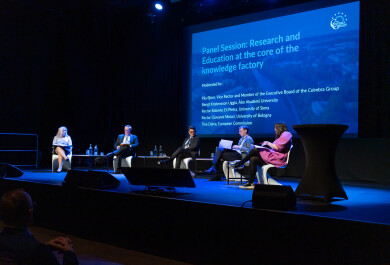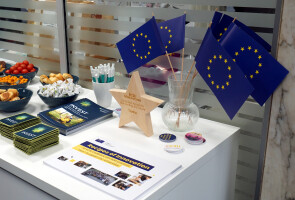The Transformative Climate Services for Decision-Makers on Observational Data event is part of the United Nations Climate Change Conference COP28. The side event brings together experts from different organisations, including the University of Turku.
The United Nations Climate Change Conference COP28 is currently taking place in Dubai, the United Arab Emirates. COP28 brings together leaders from governments, businesses, NGOs and civil society to discuss and negotiate global efforts and solutions to the climate crisis. The conference plays a crucial role in shaping international climate policy.
Professor Niina Käyhkö from the Department of Geography and Geology at the University of Turku is one of the speakers at the COP28 side event “Transformative Climate Services for Decision-Makers on Observational Data”. The event, which is organised jointly by the Integrated Carbon Observation System, ICOS, the University of Turku and the University of Helsinki, takes place on Wednesday, 6 December, at 16:45-18:15 (UTC+4). Live stream of the event will be available on the UN Climate Change events channel.
The side event focuses on ways to mobilise accessible knowledge, resources, and skills while acknowledging local contexts and incorporating real observational data, to furnish decision-makers with the necessary tools to tackle their climate-related challenges. Leveraging their expertise gained from projects like KADI, the speakers of the event will discuss their insights and experiences in collaboratively designing and implementing climate services. Success stories from Africa and Europe will be highlighted to serve as references that can be applied elsewhere.
The topic of the event is directly connected to the work done at collaborative initiatives such as the Resilience Academy which is a collaboration between four four academic institutions in Tanzania, the University of Turku and the World Bank. Resilience Academy aims to foster urban resilience with socially innovative climate risk data collection methods using low-cost technologies, community engagement and open science.
“Climate services in Africa need to be more demand-driven, localized, community-engaging and accessible for learning and for public decision-making. It is important to practice open science of the 21st century so that opportunities around the revolution of digital data and technologies, community engagement and youths skills-building can be turned into contextually smart, actionable and impactful climate service solutions,” says Professor Käyhkö.





